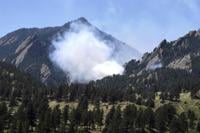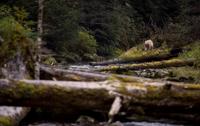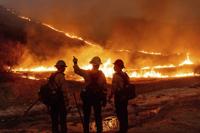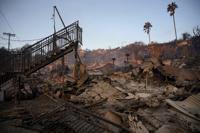Residents of the Northwest Territories are feeling the effect of the news vacuum on Facebook as they flee communities that are under threat by wildfires.
But industry observers say the regional media landscape was barren long before Meta — Facebook's parent company — pulled news content from its platforms in Canada, and that the current situation highlights a long-standing dearth of local news coverage.
Up to 50 per cent of şÚÁĎłÔąĎÍřs use Facebook to find out what's happening in cities and towns across the country, Dwayne Winseck, professor of communication and media studies at Carleton University, said Thursday in an interview.
Meta's decision to block news in Canada is irresponsible, especially in times of crisis, he said. "It's reprehensible."
An emergency situation such as the fires in the Northwest Territories underscores the importance of social media platforms such as Facebook, Instagram and WhatsApp in disseminating news, Winseck said. "When these pathways to news are brutally shut down, as they have been with Meta, banning the distribution and sharing of news on its services here in Canada, we are right to be very concerned."
Yellowknife's 20,000 residents and two nearby First Nations were ordered to evacuate by noon on Friday, as crews battled more than 200 blazes in the Northwest Territories. The wildfires have burned an area about four times the size of Prince Edward Island, but no deaths have been reported.
Meanwhile, news outlets have been unable to post on Meta's social media sites since earlier this month after the digital giant, in response to federal legislation, began rolling out its restrictions on şÚÁĎłÔąĎÍř news. The federal government's Online News Act requires some tech giants to pay for news content shared or repurposed on their platforms. In response, Meta decided it would simply block news to evade the law's reach.
Federal Transport Minister Pablo Rodriguez expressed his frustration Friday at the effect the news ban is having on those evacuating the Northwest Territories. "What Meta is doing is totally unacceptable, and I warned them during the conversations in the past of the risk of blocking news," Rodriguez, who sponsored the Online News Act when he was heritage minister, told a news conference.
He said Meta should rethink it's decision immediately, and he urged şÚÁĎłÔąĎÍřs to turn to local radio stations or the CBC to get updates on the fires.
In a statement Thursday, Meta said that şÚÁĎłÔąĎÍřs can use its platform to get help and check on loved ones in times of crisis.
"People in Canada can continue to use our technologies to connect with their communities and access reputable information, including content from official government agencies, emergency services and non-governmental organizations," the company said in an unsigned email.
But şÚÁĎłÔąĎÍřs can no longer access news on Facebook. Daniel Tsai, a lecturer in communication, culture, information and technology at the University of Toronto, said Meta's actions are harming society and putting people's lives at risk.
"People are not getting critical information such as what's happening in Yellowknife, with the prospect of an entire town being burned down. It's insane," Tsai said.
"You have a town of 20,000 people that could be wiped out of existence, and no one can get any information on it through using social media apps like (Facebook). It strikes me that this is a terrible decision by Meta. It shows how heartless and oblivious they are to their responsibility to society as a large corporation."
For media industry observers like Jeffrey Dvorkin, former director of the journalism program at the University of Toronto, the lack of news options for şÚÁĎłÔąĎÍřs was a reality long before Meta's ban. The dearth of local news on social media platforms like Facebook merely reflects a larger crisis in the country's media ecosystem.
Local newsrooms in the North and the rest of the country have been deeply damaged by years of declining advertising revenue, which has largely migrated to companies like Meta and Google.
The danger here, Dvorkin said, is that people will be forced to rely on information that cannot always be verified.
"We're in a real dilemma," he said. "And we're going to see that now, especially with the whole city of Yellowknife being evacuated. Where are people going to get their information? How are they going to find out what's the best way to get out of there? What is the state of the fires?"
One of the reasons why Facebook is popular as a news source, Tsai said, is because it collects people's personal information and preferences, and its algorithms spit out messages tailored to that person. Big tech and social media platforms, he said, have used that knowledge not just to become dominant players but also to change people's news consumption and entertainment habits.
Tsai said for the short term, people can go directly to news websites and get verified and reliable information.
"People can consume news back the way it was before Meta and other social media platforms took over complete dominance," he said. "We have to relearn how to make the wheel."
In the long term, he said, şÚÁĎłÔąĎÍř media companies could unite to create their own social media platform and shun companies such as Meta and Google.
"I think now is the time to get creative, and not necessarily rely on government to come up with solutions … but to take another approach, which would be co-operating among competitors to leverage as many viewers or readers as possible,” he said.
“Have this coalition of news so that they work together and build a platform where they can all profit from it. That’s my take on it.”
This report by şÚÁĎłÔąĎÍř was first published Aug. 18, 2023.
-- With files from Bill Graveland in Calgary.








































